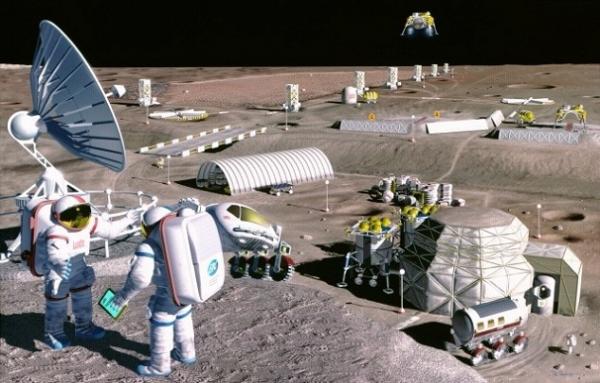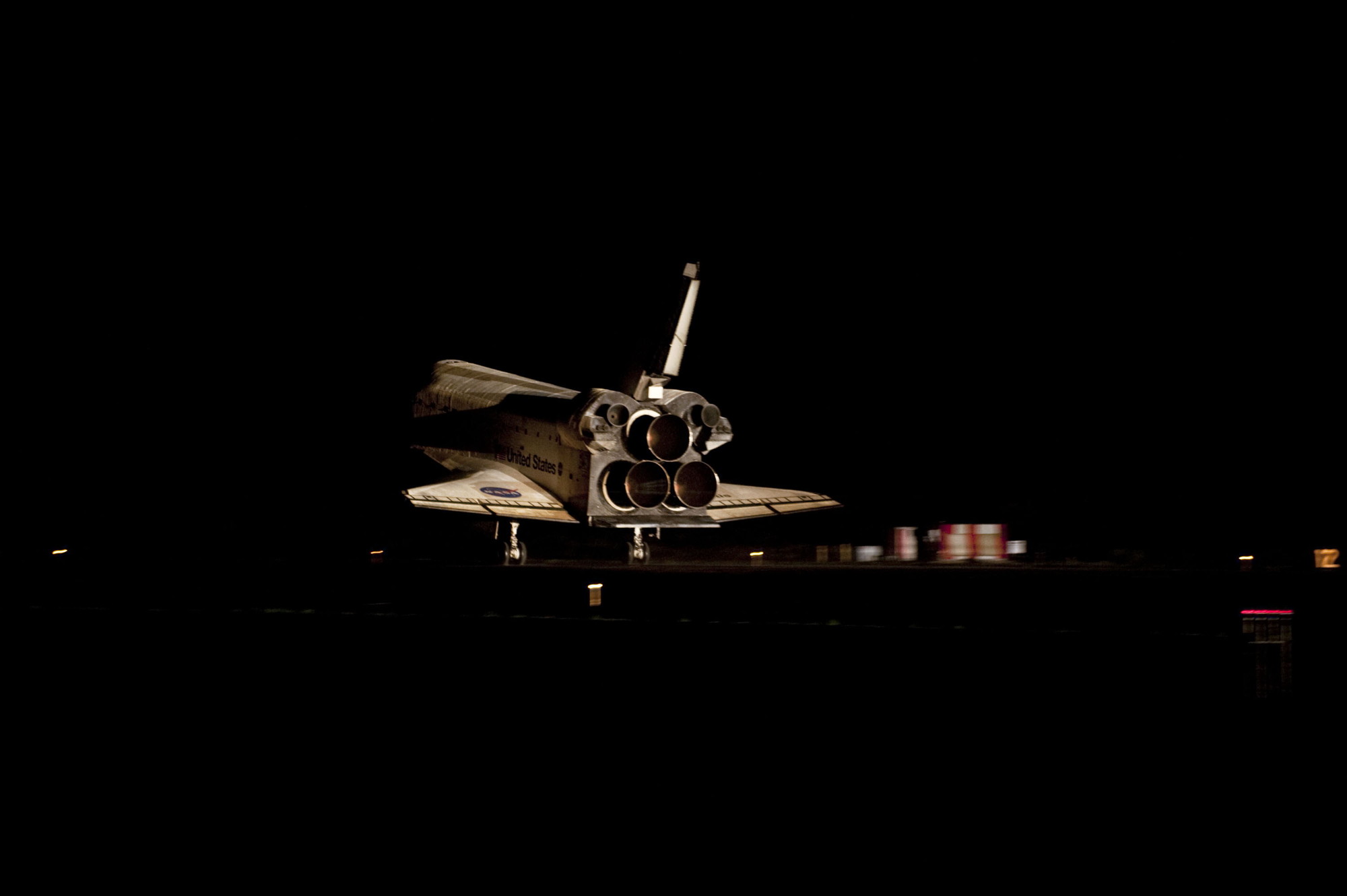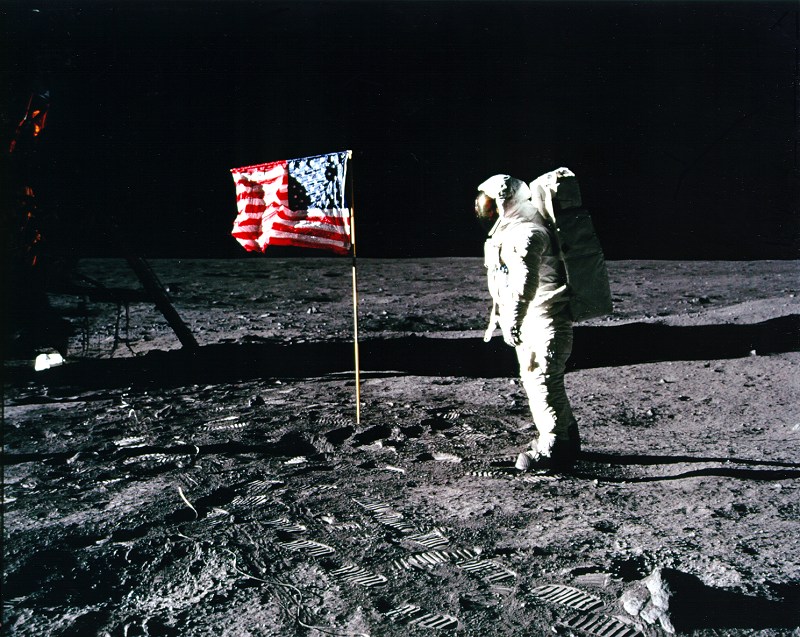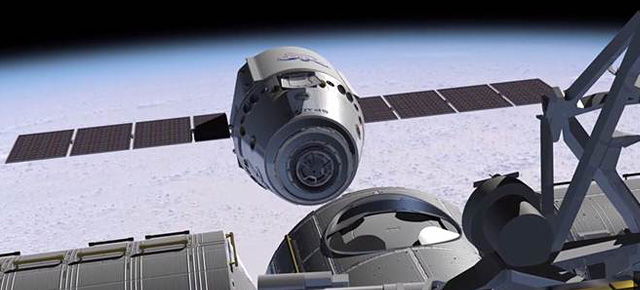GOP Presidential Candidates: Where They Stand on Space

Breaking space news, the latest updates on rocket launches, skywatching events and more!
You are now subscribed
Your newsletter sign-up was successful
Want to add more newsletters?

Delivered daily
Daily Newsletter
Breaking space news, the latest updates on rocket launches, skywatching events and more!

Once a month
Watch This Space
Sign up to our monthly entertainment newsletter to keep up with all our coverage of the latest sci-fi and space movies, tv shows, games and books.

Once a week
Night Sky This Week
Discover this week's must-see night sky events, moon phases, and stunning astrophotos. Sign up for our skywatching newsletter and explore the universe with us!

Twice a month
Strange New Words
Space.com's Sci-Fi Reader's Club. Read a sci-fi short story every month and join a virtual community of fellow science fiction fans!
The contenders for the Republican presidential nomination have talked quite a bit about space over the past few months.
In a series of recent debates, the four remaining GOP candidates — former Speaker of the House Newt Gingrich, onetime Massachusetts governor Mitt Romney, Texas congressman Ron Paul and former Pennsylvania Senator Rick Santorum — have laid out their visions for the future of NASA and American spaceflight.
These visions vary greatly, with Gingrich proposing manned moon colonies by 2020 and Paul pushing to privatize the nation's space program entirely, with the exception of national-defense activities.
Here's a look at the space ideas the candidates have advanced during the debates, in their own words.
Jan. 26, 2012; Jacksonville, Fla.
Romney (asked if Gingrich's moon colony goal is too expensive): That's an enormous expense, and right now I want to be spending money here. Of course, the Space Coast has been badly hurt, and I believe in a very vibrant and strong space program.
To define the mission for our space program, I'd like to bring in the top professors that relate to space areas, of physics, top people from industry, because I want to make sure what we're doing in space translates into commercial products. I want to bring in our top military experts on space needs, and finally, of course, people from the administration, if I have an administration. [50 Years of Presidential Space Visions]
Breaking space news, the latest updates on rocket launches, skywatching events and more!
I'd like to come together and talk about different options, and the cost … I believe in a manned space program; I'd like to see whether they believe in the same thing. I'm not looking for a colony on the moon. I think the cost of that would be in the hundreds of billions, if not trillions. I'd rather be rebuilding housing here in the U.S.
Gingrich: (on how he'd achieve his moon colony goal while keeping taxes low): You start with a question: Do you really believe NASA in its current form is the most effective way of leveraging investment in space? We now have a bureaucracy sitting there which has managed to mismanage the program so well that, in fact, we have no lift vehicle …
I believe by the use of prizes, by the use of incentives, by opening up the spaceport so that it's available on a ready basis for commercial flight, by using common sense — for example, the Atlas 5 could easily be fixed into a man-capable vehicle so you didn't have to rely on a Russian launch or a Chinese launch —there are many things you can do to leverage accelerating the development of space.
Lindbergh flew to Paris for a $25,000 prize. If we had a handful of serious prizes, you'd see an extraordinary number of people out there trying to get to the moon first in order to build that. And I'd like to have an American on the moon before the Chinese get there. [Photos of NASA's Apollo Moon Missions]
Santorum: One of the big problems we have in our country today is that young people are not getting involved in math and science and not dreaming big dreams. And so NASA, or the space program, or space, is important. NASA is one component of that. Our space defense is another area, I think both of which are very, very important.
I agree that we need to bring good minds in the private sector much more involved in NASA than the government bureaucracy we have. But let's just be honest. We're on a $1.2 trillion deficit right now. We're borrowing 40 cents of every dollar. And to go out there and promise new programs and big ideas, that's a great thing to maybe get votes. But it's not a responsible thing when you have to go out and say that we have to start cutting programs, not talking about how to grow them…
Those are things that sound good and maybe make big promises to people, but we've got to be responsible in the way we allocate our resources.
Paul: I don't think we should go to the moon. I think we maybe should send some politicians up there…
The amount of money we spend on space, the only part that I would vote for is for national defense purposes. Not to explore the moon and go to Mars — I think that's fantastic, I love those ideas, but I also don't like the idea of building government-business partnerships.
If we had a healthy economy and had more Bill Gateses and more Warren Buffetts, the money would be there. It should be privatized. And the people who work in the industry, if you had that — there would be jobs in aerospace.
I just think that we don't need a bigger, newer program… I mean, health care or something else deserves a lot more priority than going to the moon. So I would be very reluctant. But space technology should be followed up to some degree for national defense purposes, but not just for the fun of it, and, you know, for scientific purposes. [Top 10 Space Weapons]
Gingrich: It is really important to go back and look at what John F. Kennedy said in May of 1961. When he said we will go to the moon in this decade, no American had orbited the Earth. The technology didn't exist. And a generation of young people went into science and engineering and technology, and they were tremendously excited, and they had a future.
I actually agree with Dr. Paul. The program I envision would probably end up being 90 percent private sector. But it would be based on a desire to change the government rules and change the government regulations to get NASA out of the business of trying to run rockets, and to create a system where it's easy for private-sector people to be engaged.
I want to see us move from one launch occasionally to six or seven launches a day… I do not want to be the country that, having gotten to the moon first, turned around and said, "It doesn't really matter. Let the Chinese dominate space. What do we care?" I think that is a path of national decline, and I am for America being a great country, not a country in decline.
Romney: I spent 25 years in business. If I had a business executive come to me and say they wanted to spend a few hundred billion dollars to put a colony on the moon, I'd say, "You're fired."
The idea that corporate America wants to go off to the moon and build a colony there — it may be a big idea, but it's not a good idea.
Look, this idea of going state to state and promising what people want to hear — promising billions, hundreds of billions of dollars to make people happy — that's what got us into the trouble we're in now. We've got to say no to this kind of spending.
Jan. 23, 2012; Tampa, Fla.
Romney (asked if space exploration should be a priority despite the nation's budget problems):It should certainly be a priority. What we have right now is a president who does not have a vision or a mission for NASA…
I happen to believe our space program is important, not only for science but also for commercial development and for military development. And I believe the right mission for NASA should be determined by a president, together with a collection of people from those different areas – from NASA, from the Air Force space program, from our leading universities, and from commercial enterprises. [Photos: SpaceX's First Private Falcon 9 Rocket Launch]
Bring them together, discuss a wide range of options for NASA, and then have NASA not just funded by the federal government but also by commercial enterprises, have some of the research done at our universities. Let's have a collaborative effort, with business, with government, with the military as well as with our educational institutions.
Have a mission, once again excite our young people about the potential of space, and the commercial potential will pay for itself down the road. This is a great opportunity… With a president that is actually willing to create a mission and a vision for NASA and for space, we can continue to lead the world.
Gingrich (asked if he would commit federal money to get astronauts to Mars, or rely on the private sector):Well, the two are not incompatible. For example, most of the great breakthroughs in aviation in the '20s and '30s were the result of prizes. Lindbergh flew to Paris for a $25,000 prize. I would like to see vastly more of the money spent encouraging the private sector into very aggressive experimentation.
And I'd like to see a leaner NASA. I don't think building a bigger bureaucracy and having a greater number of people sit in rooms and talk gets you there. But if we had a series of goals that we were prepared to offer prizes for, there's every reason to believe that you have a lot of folks in this country and around the world who would put up an amazing amount of money and would make the Space Coast literally hum with activity, because they'd be drawn to achieve these prizes.
Going back to the moon permanently; getting to Mars as rapidly as possible; building a series of space stations and developing commercial space — there are a whole series of things you can do that could be dynamic that are more than just better government bureaucracy. They're fundamentally leapfrogging into a world where you're incentivizing people who are visionaries, and people in the private sector to invest very large amounts of money in finding very romantic and exciting futures.
June 13, 2011; Manchester, N.H.
Gingrich (asked what role the government should play in the future of space exploration): Well, sadly — and I say this sadly, because I'm a big fan of going into space and I actually worked to get the shuttle program to survive at one point — NASA has become an absolute case study in why bureaucracy can't innovate.
If you take all the money we've spent at NASA since we landed on the moon and you had applied that money for incentives to the private sector, we would today probably have a permanent station on the moon, three or four permanent stations in space, a new generation of lift vehicles. And instead what we've had is bureaucracy after bureaucracy after bureaucracy, and failure after failure.
I think it's a tragedy, because younger Americans ought to have the excitement of thinking that they, too, could be part of reaching out to a new frontier…
The scientific future is going to open up, and we're at the beginning of a whole new cycle of extraordinary opportunities. And, unfortunately, NASA is standing in the way of it, when NASA ought to be getting out of the way and encouraging the private sector.
(Later, in response to a comment by debate moderator John King:)
John, you mischaracterized me; I didn't say "end the space program." We built the transcontinental railroads without a national department of railroads. I said you could get into space faster, better, more effectively, more creatively if you decentralized it, got it out of Washington, and cut out the bureaucracy. It's not about getting rid of the space program; it's about getting to a real space program that works.
Romney: I think fundamentally there are some people — and most of them are Democrats, but not all — who really believe that the government knows how to do things better than the private sector... And they happen to be wrong.
You can follow SPACE.com senior writer Mike Wall on Twitter: @michaeldwall. Follow SPACE.com for the latest in space science and exploration news on Twitter @Spacedotcom and on Facebook.

Michael Wall is a Senior Space Writer with Space.com and joined the team in 2010. He primarily covers exoplanets, spaceflight and military space, but has been known to dabble in the space art beat. His book about the search for alien life, "Out There," was published on Nov. 13, 2018. Before becoming a science writer, Michael worked as a herpetologist and wildlife biologist. He has a Ph.D. in evolutionary biology from the University of Sydney, Australia, a bachelor's degree from the University of Arizona, and a graduate certificate in science writing from the University of California, Santa Cruz. To find out what his latest project is, you can follow Michael on Twitter.



